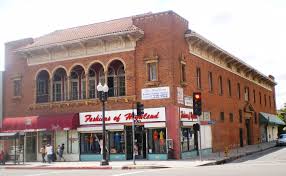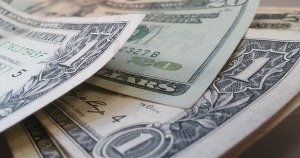
Mark 13:28
“Now learn a lesson from the fig tree. When its branches bud and its leaves begin to sprout, you know that summer is near.”
I believe that, on a macro level, the economy can be so manipulated that it can be difficult to tell how it is actually doing; from quantitative easing, bailouts, subsidizing, fiddling with unemployment numbers and on and on. If we learn a lesson from the fig tree, I believe that we can see (on a micro level) when economic troubles are beginning to blossom. I’m going to break things into groups for this article. Some could fit into multiple categories, but you’ll get the idea.
Gas Prices
Gas prices can fluctuate based on several factors, from an international incident overseas to a weather event close to home. The price at the pump is reflected in the price of just about everything else. Petroleum is used in the manufacturing and delivery of almost everything we consume and interact with on a daily basis. The more it costs to get to us, the more we’re going to pay for it.
Unemployment
This is hugely manipulated by the government, mainly by not adding in people who are out of work but no longer qualify for unemployment and by not counting people who are underemployed. This can be hard to track on a local level but is not impossible. Now and then, we will hear of a local company letting workers go, or of a larger corporation closing a local branch.
Food
As I mentioned above, the price of oil can cause the price of groceries to increase. So can inflation, crops impacted by weather events and other factors. Companies have gotten tricky. They don’t want you to see the rising price of a product. At times they make the packaging smaller and keep the price the same or keep the box the same and change the amount of the product in the package.
I have said several times over the years that many of the riots and rebellions seen worldwide are due to increased grocery prices. The people of many countries spend 30% of their income on food. We here in the USA spend roughly 12-15%. They rioted because they had no more money to spend and the price of staples was increased, leaving them unable to feed their families.
Swelling soup kitchens and bare food shelves are also signs of local economic troubles. I have seen several reports in the last few years where food shelves have said that they had seen a sharp increase in people requesting aid.
Real Estate
Commercial and housing markets are a good gauge as well. Seeing foreclosure rates and the amount of rental properties increase is a sure sign that the local economy is in trouble. Banks are not giving mortgages to just anyone anymore, so people who would have qualified for a home loan ten years ago might be forced to rent unless they can come up with a 20-30% down payment.
Small local businesses closing can be another sign of trouble in a local economy. Some might go out of business because of a bad concept or poor business practices. However, when you see several vacancies in strip malls or in other locales, it can be a sign that there is not much disposable income in the local area.
Consumerism
To me this is the most telling sign of local economic trouble. We live in a society that likes to spend, so when traffic at local shopping centers is light for any length of time, it could be due to a lack of funds in the shoppers’ accounts and could lead to the closing of local businesses.
Another sign of economic trouble is sales with deep discounts, or starting Christmas sales much earlier than normal. Companies don’t do this because they love you, they do it because they love your money and some money is better than none. Another sort of silly sign is when a company will have one of their hourly employees dress up or hold a sign advertising a “special”. They would much rather business be busy enough to have that person in serving customers than providing cheap advertising.
I drive by several establishments that people gather at after work for happy hour. When times are tight, these places have fewer customers. The same can be said for restaurants. Both fast food and dine-in restaurants see fewer customers when the local economy is struggling. Many offer free meals for children on a certain day, or free dessert on another, or even buy-one-get-one deals. Again, they don’t offer these because they just like to see your face.
What do These Signs Mean?
I think they can show us that we could see more unemployment as companies try to stay afloat. As these companies try to get your business, it could mean steep discounts for those who have cash. There are those who say paper money is worthless, that gold and silver are the only way to go. I agree that paper money has no inherent value. However, they are wrong that it is worthless. Until we see hyperinflation, paper money still has value and the person who has little debt and has cash can get some very good deals.
An extended time of these signs in a local economy could be a huge warning to move. Look at Detroit, the city was vibrant and thriving, known for music and automotive might. But now the city is literally falling apart with some buildings being so derelict that the city has torn them down.
I have no proof, but I believe that with a drop in local economy, we’ll see an increase in crime. There is a certain percentage of the population who have no problem turning to crime in the best of times. I believe there is a larger percentage who will only do it if they feel they must to take care of their families.
I would really like to hear your thoughts on signs of trouble at the micro level, local economy. Please share them in the comment section.
Please click here to vote for Prepared Christian as a top Prepper site!
If you liked this article please think about sharing it on the social media listed below, thanks!








